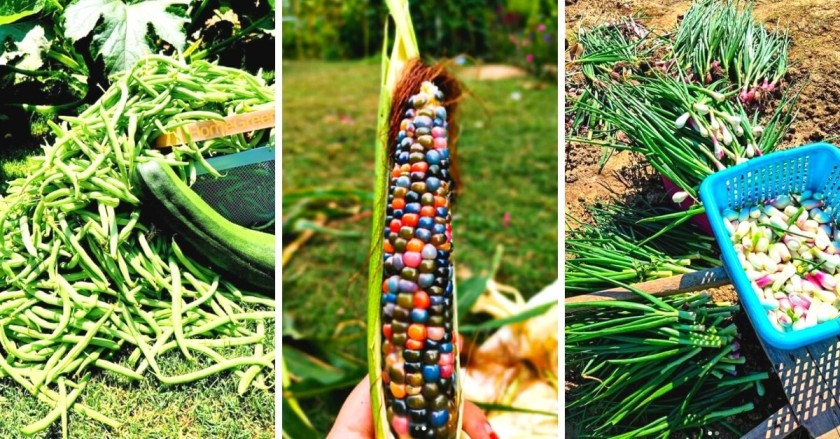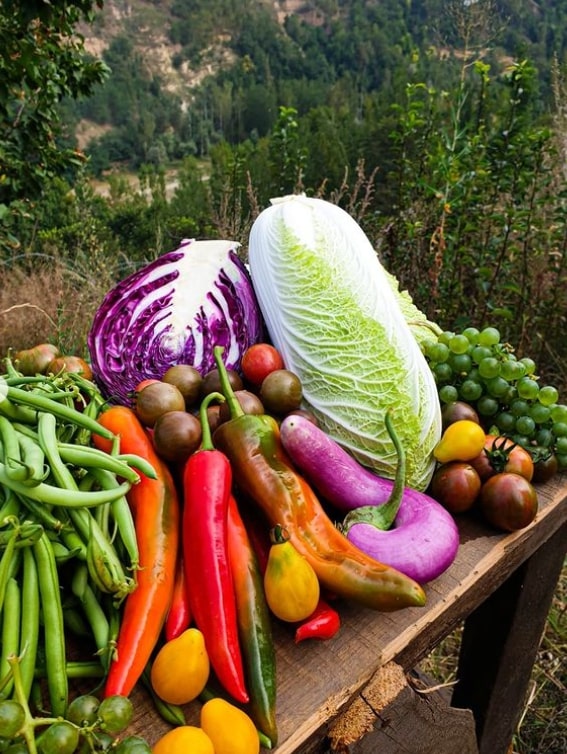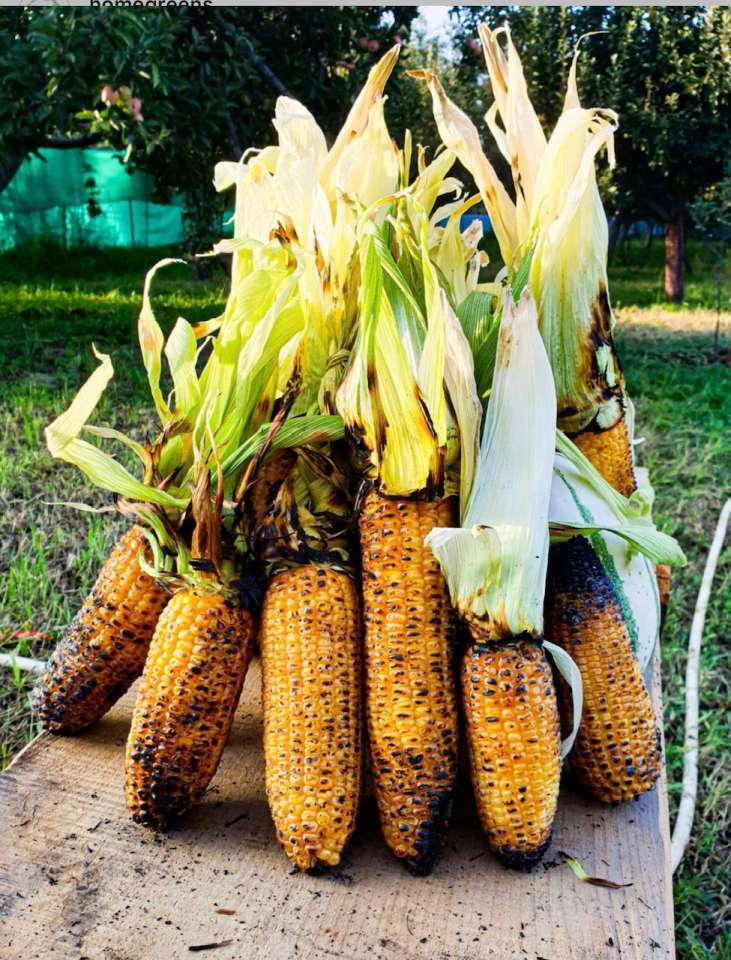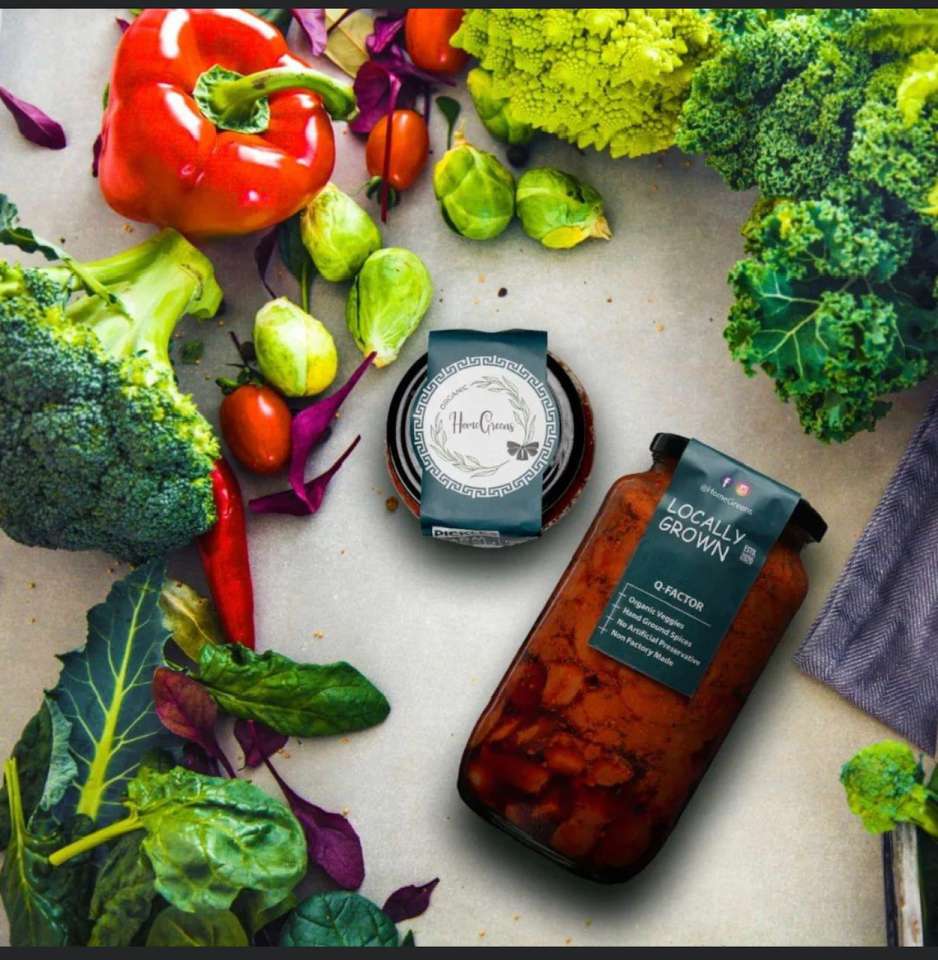Are you willing to give up stability to pursue a passion that you may have very little knowledge of?
When Insha Rasool was faced with this question while doing her PhD, she decided to give herself six months. She told her professor that if she did not succeed in organic farming, she would return to the university in South Korea, where she was pursuing Molecular Signalling.
And so she packed her bags and returned to her hometown Budgam in Jammu and Kashmir in 2018.
All she had at the time was her ancestral land of 3.5 acres, on which her family used to grow crops and vegetables for self-consumption. She reached out to farmers in the neighbourhood, purchased seeds and manure, and hired labourers to do the sowing, tilling and other such work.
Being a scientist by profession, she knew doing research was not enough to grow a crop. She spent months experimenting with different varieties of seeds in different seasons.
“I failed more than I succeeded. Sometimes the crop did not sprout, or the manure did not work, sometimes I put in extra water, or planted the seed in the wrong season. These experiments lasted beyond my deadline of six months. Eventually, I chose to stay in farming, and this decision turned out to be life changing,” Insha tells The Better India.
This catapulted the launch of Homegreens, a ‘farm-to-fork’ brand that Insha has built with her hard work over the last two years.
She attributes her decision to continue farming despite losses to the articles she read on The Better India (TBI), of individuals trying organic farming for the first time. “Back then, when I had no guidance, I would read TBI stories and follow the tips or hacks they entailed. I have tried so many of them on my farm, and most of them have worked,” she adds.
Now on the other side of the table, Insha excitedly shares her failures and experiments, which she says can hopefully help others in the future.
In pursuit of a healthy lifestyle

An alumnus of the Indian Institute of Science in Bengaluru, Insha has lived in many places with greenery and lower temperatures. After living in Kashmir, Delhi and Bengaluru, she moved to South Korea, where the weather was more pleasant.
Although her family had been in farming, she took interest in the profession only after a visit to a strawberry farm during her child’s school activity.
“I was blown away by the incredible technology they used to grow fresh, colourful strawberries. I casually told my husband how great it would be if someone in Kashmir did the same. He said why wait for someone else when we have land. The decision to leave everything was after six months of rigorous planning and research,” she recalls.
Insha says only a handful of people were selling exotic vegetables and veggies grown with heirloom seeds in her region. So she chose the exotic veggies for her farm.
She invested her money in accumulating lesser-known seed varieties from local and international seed banks, as well as her maternal grandmother’s own collection.
Not all these seeds would turn into crops. Weed infestation was a major problem that she tackled by manual removal, till she found a permanent solution in weed-repellant plants.
“I even tried the seedling process in trays, as some heirloom seeds needed more nutrition. It took me almost five months to get the right soil and water ratio for germination. The weather was another issue. I was so happy when my farm yielded lettuce in the summer, but it turned out to be bitter. Finally, by the end of 2019, healthy cherry tomatoes, lettuce, broccoli, chillies and bell peppers were growing,” says Insha.

She says she adopted the ‘succession farming’ method.
“I divided every acre into four parts. This ensures that instead of a single crop in one cycle, I get multiple crops in multiple cycles. We sow seeds in one part, and after two months, use the second part, and so on. Along with slow-growing crops, I put in fast-growing ones like coriander, spring onions, herbs, fenugreek, collard greens, etc so that no part of the land is sitting idle,” she explains.
She also adopted the intercropping technique, mostly to keep pests away. She grows pest controlling plants like garlic, common nettle and artemisia in between veggies.
In case of insect invasion, she uses a fermented mixture of artemisia, neem oil, chilli, onions and garlic.

Insha sells her crops on her Instagram and Facebook page. She claims that the majority of the produce is sold within 24 hours of uploading a post.
“I earned close to Rs 8 lakh in the first two months of selling, and since then we have been growing steadily. Our profits are also generated via frozen varieties of french beans and peas, as well as blanched sweet corn and tomatoes. We are able to sell throughout the year,” she adds.
Under the brand, Insha has also collaborated with local farmers to sell exotic vegetables and value-added products like pickles across India, she says. The 32-year-old groups with an average of 15-20 farmers every month and offers them prices higher than the market rates, she adds.

“Insha is a very dedicated and innovative farmer. She not only helps farmers get a fair price but also trains them to learn the latest farming methods. Earlier, our farmers were selling broccoli at Rs 30 per kilo. Now they are getting Rs 100,” Shamas Sul Hassan Mir, Nodal Officer (Marketing Linkage), state Agricultural Department, tells The Better India. For the last couple of months, Shamas has been helping farmers connect with Insha.
Seeing the success of her brand, Insha hopes to soon launch a poultry section and purchase more land for cropping.
Edited by Divya Sethu
No comments:
Post a Comment